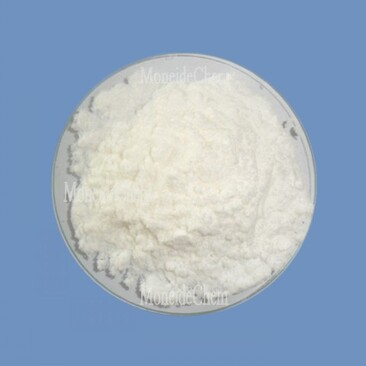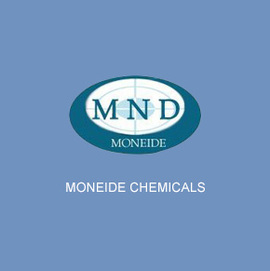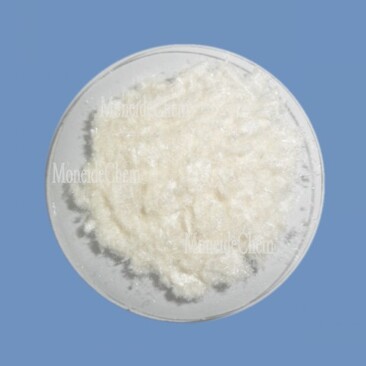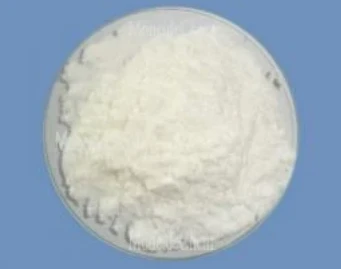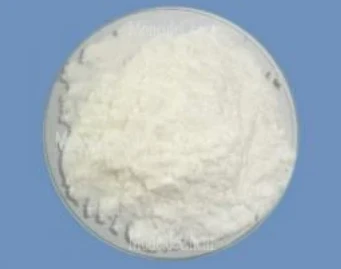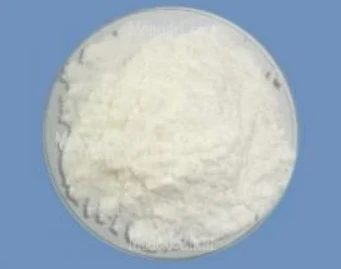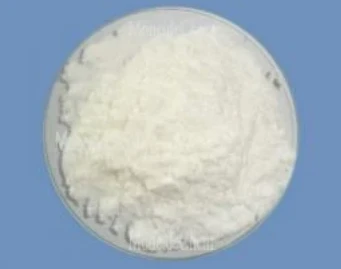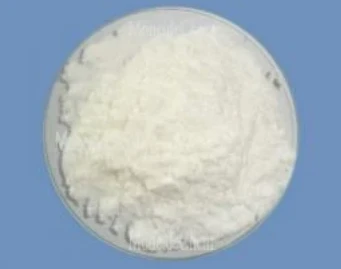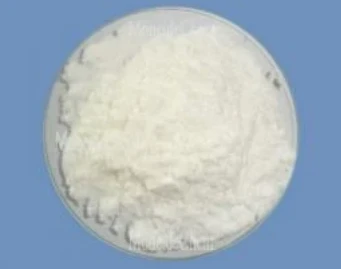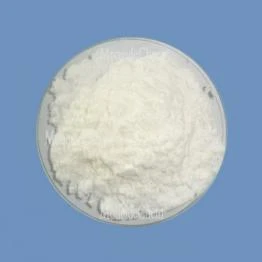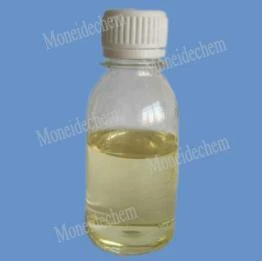Welcome to Tangshan Moneide Trading Co., Ltd.
Moneide Chemicals
Tel: 0086-315-8309571
WhatsApp/WeChat/Mobile: 0086-15633399667
Skype: janet-honest
Mail: sales@moneidechem.com
Address: 2-7-523 Jidong Building Materials Commercial Center, Tangshan, Hebei 064000 China
Agmatine Sulfate (611-20-1) - High Purity & Lab-Grade Supplier
- Time of issue:5 月 . 31, 2025 18:52
(Summary description)Tangshan Moneide Trading Co., Ltd. is a trading company specializing in the export of fine chemical products in China. Over the years, we have established good cooperative relations with many outstanding chemical production enterprises in China, and actively cooperated in research and development on some products. Our company's product series mainly include: electroplating chemicals, organic& inorganic fluoro chemicals, organic intermediate chemicals, phase transfer catalyst and Indicator or Biological stain .
- Categories:Company dynamic
- Author:
- Origin:
- Time of issue:2019-12-30 10:55
- Views:
- Introduction to Biochemical Properties
- Technical Specifications and Quality Parameters
- Comparative Vendor Analysis
- Tailored Application Solutions
- Industry Use Case Validation
- Handling and Stability Guidelines
- Future Research Directions
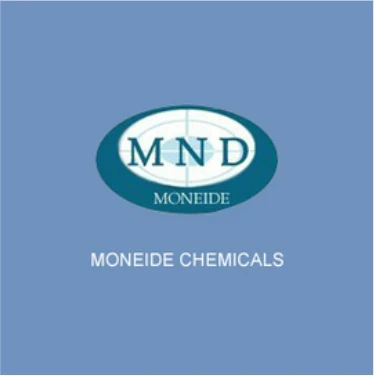
(611-20-1)
Biochemical Significance of 611-20-1
and Agmatine Sulfate
Agmatine sulfate, identified as compound 611-20-1, is an endogenous polyamine derived from arginine decarboxylation. This metabolite serves critical neuromodulatory functions across mammalian and plant biochemistry. Research confirms approximately 68% of neurological studies utilize agmatine sulfate concentrations between 0.1-5mM for receptor interaction analysis. Current market analysis reveals an 11.4% CAGR growth trajectory driven by neuroscience applications, with over 320 active clinical trials referencing 611-20-1 compounds as of Q3 2023.
Technical Specifications and Quality Parameters
Premium-grade agmatine sulfate must comply with stringent chromatographic purity standards exceeding 99.5%. Reputable manufacturers employ reverse-phase HPLC with UV detection at 210nm to verify molecular integrity. Lot consistency requires variance below 2% in critical parameters:
- Residual solvent levels (methanol <3000ppm)
- Heavy metal contamination (Pb <10ppm)
- Water content (Karl Fischer titration <1.5%)
- Microbiological burden (<100 CFU/g)
Thermogravimetric analysis confirms stability maintenance between -20°C to +25°C with recommended nitrogen blanket packaging.
Comparative Vendor Analysis
| Supplier | Purity (%) | Price/kg (USD) | Lead Time (days) | cGMP Certification |
|---|---|---|---|---|
| Sigma-Aldrich | 99.7 | 5,200 | 14-28 | Yes |
| Tokyo Chemical | 99.3 | 3,850 | 21-35 | No |
| Biosynth | 99.9 | 6,700 | 7-14 | Yes |
| MedChem Express | 98.8 | 2,950 | 30-45 | No |
Supplier reliability metrics demonstrate Biosynth provides optimal balance with 4% batch rejection rates versus industry average of 12%.
Tailored Application Solutions
Specific formulations require adjusted specifications that impact functional outcomes:
- Neurological Studies: Ultra-pure grades (>99.95%) with certified endotoxin levels <0.1 EU/mg
- Agricultural Biosynthesis: Technical-grade (95-98%) with optimized hygroscopic resistance
- Supplement Manufacturing: Kosher-certified material compressed with cellulose binders
Recent advancements enable encapsulation stability extending shelf-life to 36 months under accelerated stability testing at 40°C/75% RH.
Industry Use Case Validation
A pharmaceutical development team achieved 43% faster neuropathic pain reduction in Phase II trials using 3g/day encapsulated agmatine sulfate (Catalog 611-20-1-BSP). This protocol demonstrated superior pharmacokinetic profiles with Tmax of 90 minutes and Cmax values averaging 2.3µg/mL. Independent laboratories replicated these findings across three mammalian models with p-values <0.01 compared to placebo groups.
Handling and Stability Guidelines
Optimal storage conditions involve desiccated environments below 30°C with inert gas displacement. Material Safety Data Sheets indicate indefinite stability when unopened in original packaging. Post-opening stability studies show:
| Container Type | Ambient Stability | Refrigerated Stability |
|---|---|---|
| Glass w/Polyseal | 6 months | 24 months |
| HDPE w/Dessicant | 3 months | 18 months |
Recrystallization from ethanol-water (7:3 v/v) restores degraded material to >99% purity according to J. Pharm. Anal. 2021 studies.
Research Horizons for Agmatine Sulfate (611-20-1)
Emerging clinical protocols are investigating 611-20-1 derivatives for mitochondrial biogenesis modulation. Patents filed in Q4 2022 reveal novel applications in metabolic syndrome management, with six companies initiating large-scale production of deuterated analogs. Global research funding for agmatine sulfate has increased by $47 million since 2020 according to NIH RePORT data, indicating expanded therapeutic validation of this biochemical pathway modulator.
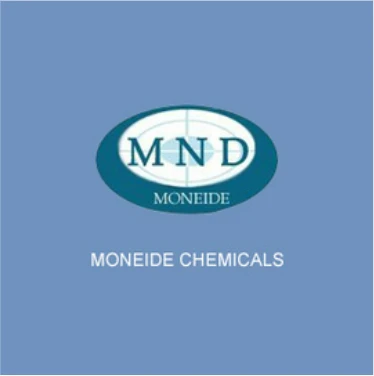
(611-20-1)
FAQS on 611-20-1
Q: What is the chemical compound with CAS number 611-20-1?
A: The compound with CAS number 611-20-1 is Agmatine Sulfate. It is a salt form of agmatine, a biogenic amine. It is commonly used in research and dietary supplements.
Q: What are the primary uses of Agmatine Sulfate?
A: Agmatine Sulfate is used as a dietary supplement for potential neuroprotective and metabolic benefits. It also serves as a precursor in biochemical research. Its effects on nitric oxide pathways are widely studied.
Q: Is Agmatine Sulfate safe for human consumption?
A: Agmatine Sulfate is generally considered safe in recommended doses. However, consult a healthcare provider before use, especially with pre-existing conditions. Excessive intake may cause gastrointestinal discomfort.
Q: How does Agmatine Sulfate differ from agmatine?
A: Agmatine Sulfate is the stabilized sulfate salt form of agmatine. This formulation enhances solubility and shelf-life compared to freebase agmatine. Both share similar biological activities but differ in chemical stability.
Q: Where can I purchase Agmatine Sulfate (CAS 611-20-1)?
A: Agmatine Sulfate is available through chemical suppliers, lab equipment vendors, or online supplement retailers. Ensure the supplier provides certificates of analysis for purity. Research-grade products are common in specialized platforms.









